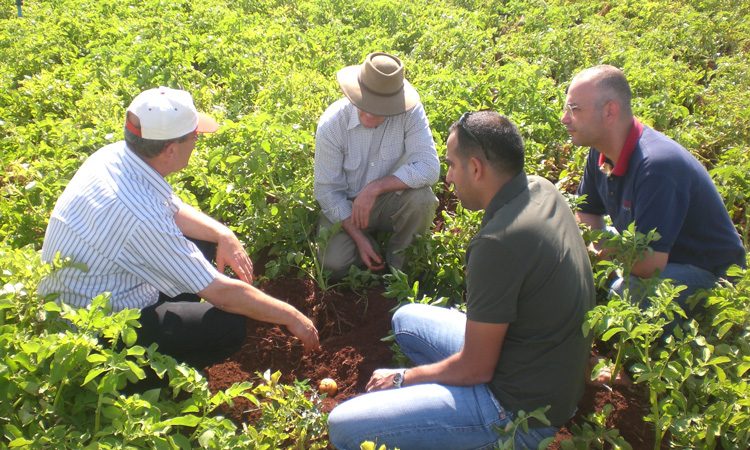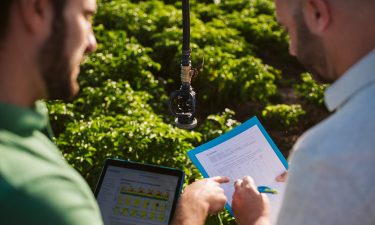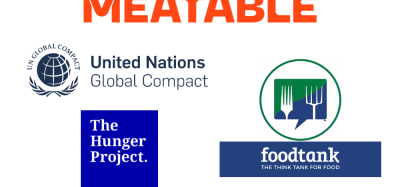Creating a sustainable food system
- Like
- Digg
- Del
- Tumblr
- VKontakte
- Buffer
- Love This
- Odnoklassniki
- Meneame
- Blogger
- Amazon
- Yahoo Mail
- Gmail
- AOL
- Newsvine
- HackerNews
- Evernote
- MySpace
- Mail.ru
- Viadeo
- Line
- Comments
- Yummly
- SMS
- Viber
- Telegram
- Subscribe
- Skype
- Facebook Messenger
- Kakao
- LiveJournal
- Yammer
- Edgar
- Fintel
- Mix
- Instapaper
- Copy Link
Posted: 16 October 2019 | Paul Campbell | 1 comment
Paul Campbell, Supply Chain Senior Vice President of PepsiCo Europe and Sub-Saharan Africa, explains how PepsiCo is combating the unprecedented pressures that the global food system is currently facing.


World Food Day (taking place on 16 October this year) will see events in over 150 countries across the world that help to promote awareness and action on ensuring everyone has access to the food they need. It is an opportune moment to consider the challenges that face our food systems, how we can address them, and what each of our roles is in helping to build a sustainable food system.
Having to feed more and more people, in tougher conditions, will present a growing challenge for food producers. Over the next 30 years, global agricultural demand will grow by as much as 50 percent, whilst water scarcity is also expected to deepen. Businesses producing food across the world will need to adapt to these changing circumstances.
PepsiCo’s products are enjoyed by consumers more than one billion times a day, and we have a role to play in how the system produces, distributes, consumes and disposes of food and beverages in order to tackle the shared challenges we face. In September 2019, we released our 2018 Sustainability Report and announced that we are refocusing our Sustainability Agenda on helping to build a more sustainable food system that can meet human needs for nutrition and employment, and continue to drive economic growth and social development, without exceeding the natural boundaries of the planet.
We will do this by focusing on overlapping priority areas within our food system, where we believe we can make the greatest contribution.
Next-generation agriculture
Already, agriculture accounts for around 70 percent of the world’s freshwater consumption and about a quarter of global greenhouse gas emissions, but this will only grow as demand for food globally increases. The future of agriculture will be in finding a way to meet this demand, whilst also improving efficiency, so that we can produce more, using less.
Many of our products begin their life with our farmers. That is why agriculture is at the core of our new Sustainability Agenda. We are already sustainably sourcing all our potatoes, whole corn and oats direct from farmers in Europe and through our Sustainable Farming Program (SFP), we are aiming to advance positive social, environmental and economic outcomes in our direct agricultural supply chain. It has already been implemented across 38 countries and provided over 40,000 farmers around the world with training and resources to help them on the path to greater productivity, resiliency and sustainability.


PepsiCo i-crop 2.0.
A key part of this programme is precision agriculture – the idea of using state-of-the-art technology to help farmers gather data on their crops and utilising those insights to improve growing practices that are more efficient and use fewer resources. We are already finding this is part of the solution to addressing some of the challenges our food system faces.
For example, in Europe, PepsiCo developed a new agriculture software called i-crop 2.0, with Cambridge University. i-crop 2.0 produces data about how crops, like potatoes, are growing. This helps our farmers better understand how to optimise yields and inputs like water and fertiliser – reducing resource usage and greenhouse gas impacts.
Positive water impact
In some regions, water is scarce and this scarcity is being worsened by climate change, which is putting pressure on water resources across the globe. Estimates indicate that by 2025, two-thirds of the world’s population will live in water-stressed regions.
Water is crucial to the world’s food system. For PepsiCo, it nourishes crops used to make food products, is a main ingredient in many beverages and an important component for food manufacturing. As such, improving water stewardship across our business and in regions where we operate is an integral part of our Sustainability Agenda. We are striving to improve water-use efficiency and have set an ambitious goal to replenish 100 percent of the water we consume for manufacturing in high water-risk areas by 2025. We have already made significant progress on this – in 2018, we helped provide safe water access to over six million people – boosting the total number to 22 million people since 2006.
A big part of how we are creating a positive water impact lays within our manufacturing impact, rethinking how we use water at every step of the way. For example, our technical teams have recently introduced a new technology called ‘Splash Cone’ in our potato chip manufacturing at a point in the process which traditionally was water-intensive – potato slicing. This technology ultimately works like a water sprinkler, more efficiently distributing water around our potato slicers, to make sure each drop of water goes further. Across Europe alone, this technology will save 200 million litres of fresh water each year, reducing our water usage in our potato chip factories by two thirds.
A circular future for packaging
In an efficient food system, packaging helps make safe, high-quality products accessible to all, to extend the shelf life and to limit food waste. But, for it to have a role in a more sustainable food system, we need to eliminate packaging waste. Last year, the UN warned that only 9 percent of the world’s plastic waste is recycled each year.
Across all of our brands, we have made it our mission to help build a circular future for packaging and a world where plastics need never become waste.
Our sustainable plastics vision involves reducing the amount of plastic we use, increasing recycling rates, and reinventing our packaging to look at alternate models and materials. For example, by making our plastic bottles lighter and using innovative processes to make snack packaging more compact we have been able to reduce the amount of packaging we use. We are also working towards a goal across Europe to include 50 percent recycled plastic (rPET) in our beverage bottles by 2030 – we are making progress around this goal despite challenges in the amount available.
This is why we are investing to boost recycling rates and have also formed new partnerships to help develop enhanced recycling technologies. Because higher recycling rates mean a greater supply of recycled plastic, we are investing in recycling infrastructure and consumer education with key partners and we have joined a range of partners to help build new systems that we believe will make plastics use more sustainable.
But, ultimately the global plastics challenge requires systemic change and this can only be achieved with many organisations and individuals acting in concert. PepsiCo aims to bring business, government, civil society and consumers together to create a world where plastic need never become waste.
Our work across agriculture, water and packaging are just three elements of our new Sustainability Agenda – we will also focus our efforts on improving choices across our portfolio, doing our part to curb greenhouse gas emissions across our value chain as well as making a positive impact on the lives of those in our value chain and communities.
World Food Day is a reminder to reflect on our food system and how it will operate in the future. In the past, the issues outlined above were problems exclusively for governments or NGOs. Today, companies such as ours, making products that feed many people around the world, have a responsibility to lead the way on tackling waste, driving sustainable farming and manufacturing, and delivering tangible improvements in the livelihoods of those that support and use the global food system.
About the author
Paul Campbell is an engineer by background, and is currently Supply Chain Senior Vice President for PepsiCo Europe and Sub-Saharan Africa. He has worked for PepsiCo for over 22-years, leading all aspects of Supply Chain, including manufacturing, logistics, warehousing, customer relations and planning and is passionate about driving the sustainability agenda across the value chain. Paul has experience in all of PepsiCo’s categories – snacks, beverages, juice, grains, and dairy from his time leading the Supply Chain organisation across Eastern Europe and working in the UK Snacks business. He has also led the Global Supply Chain for PepsiCo’s concentrate division.
Related topics
Environment, Food Security, Food Waste, Research & development, Supply chain, Sustainability










It’s fantastic to see the packaging industry taking environmental outcomes more seriously. Packaging technology has come a along way over the past 5 years and minimising waste makes good business sense both financially, ethically and environmentally.